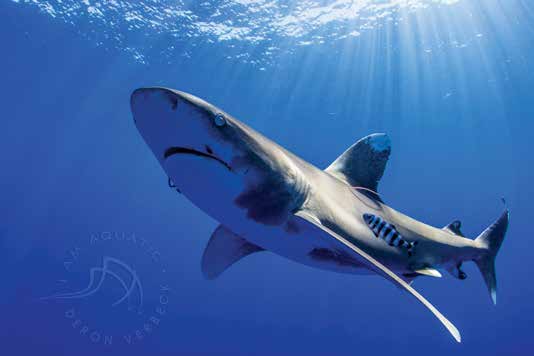Home > Research+Applications > Research Highlights > Research Highlights Archive > Monitoring Coral Populations
Sociopolitical Perspectives of Fisher-Shark Interactions
Fisheries science and management often fail to account for stakeholder conflicts and sociopolitical inequities. A team led by CIMAR Fisheries Social Research Specialist, Mia Iwane, engaged fishers to examine the sociopolitical dimensions of fishershark interactions in pursuit of more holistic problem framings and solutions. Interviews with Hawai‘i small boat fishers and observations of a community-based shark-tagging project elicited insights into fisher perspective, socioeconomic landscapes, stakeholder relationships, and power dynamics. The investigators found that economic cost and sharks as fishing competitors frame the fisher-shark interactions superficially. Deeper conflicts include fishers‘ poor perceptions of management legitimacy, degraded relationships with researchers and managers, threatened fisher identities, and poor enforcement capacity. These layered problem framings limit the effectiveness of singular approaches, such as regulation to mitigate fisher-shark interactions, and require multi-pronged solutions attentive to engagement processes and stakeholder relationships. The team documented the potential for fisher-researcher collaboration, knowledge exchange, and transparent communication to advance collective understanding of sharks and shark-handling strategies, shift fisher behavior, and reduce shark mortality. A sociopolitical approach to problem solving may yield greater collective benefits to fisheries stakeholders and sharks, with applications to managing complex social-ecological systems more broadly.
– Iwane, M.A, K.M. Leong, M. Vaughan, and K.L.L. Oleson, 2021: When a shark is more than a shark: A sociopolitical problem-solving approach to fisher-shark interactions. Front. Conserv. Sci. https://doi.org/10.3389/fcosc.2021.669105.

Mia Iwane

